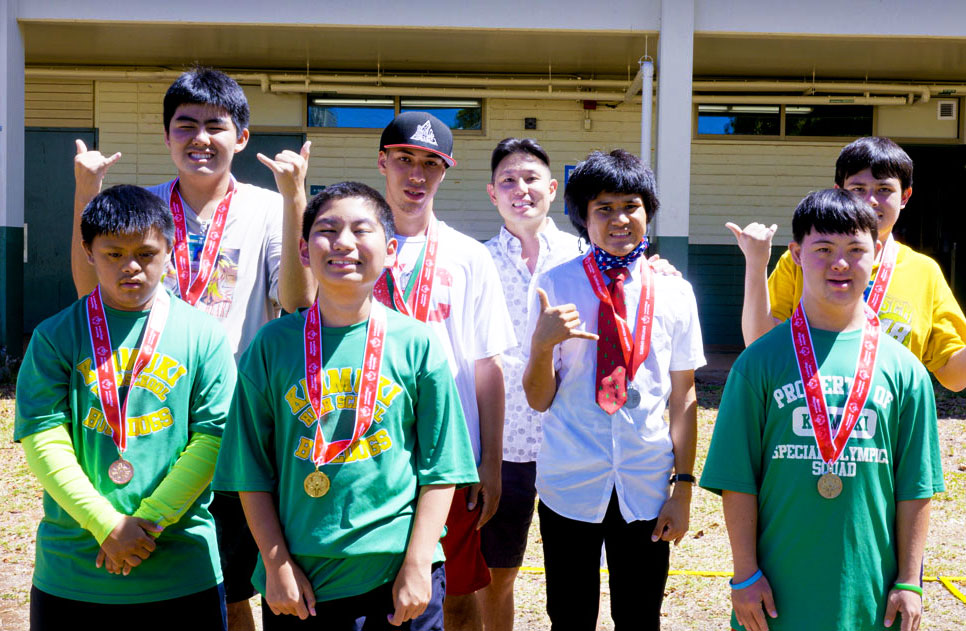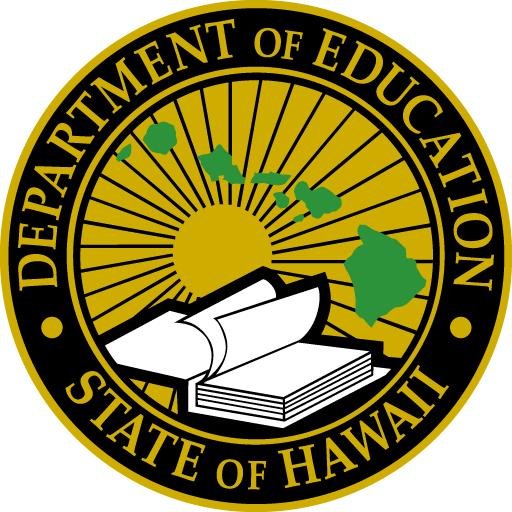The Hawaiʻi State Department of การศึกษา (HIDOE) provides services to children ages 3 through 21, residing in Hawaiʻi, who are eligible for การศึกษาพิเศษ และบริการที่เกี่ยวข้อง Special education is specially designed instruction, related services, and other supplementary aids to meet your child’s unique needs—at no cost to parent(s).
ภาพรวม
Special education refers to a range of services provided your child with disabilities to improve their educational outcomes. It is specially designed instruction to meet the unique needs of your child with disabilities. Special education may include, but is not limited to, academic services, speech-language services, psychological services, physical and occupational therapy, counseling services, and parent education. In addition, การศึกษาพิเศษ services are provided at no cost to parent(s). Find out if การศึกษาพิเศษ Is it for your child? (PDF).
Special education services are made available to any student — ages 3 through 21 — who demonstrates a need for specially designed instruction after an eligibility determination. An evaluation will determine the nature and extent of the student’s needs. Evaluations are separate assessments that may include: academic performance, communication skills, general intelligence, health, vision, hearing, social and emotional status, and motor abilities. If your child is eligible for การศึกษาพิเศษ, services are provided through an Individualized การศึกษา Program (IEP).
The federal Individuals with Disabilities การศึกษา Improvement Act of 2004 (IDEA) and state regulations require the HIDOE to provide a free appropriate public education (FAPE), which includes a continuum of services for your child who is eligible for การศึกษาพิเศษ และบริการที่เกี่ยวข้อง
การประเมินและคุณสมบัติ
Special education is intended for students who have disabilities that cause difficulty in learning and need specialized instruction.
Evaluation is defined as the procedures used to determine if your child has a disability and the nature and extent of the need for การศึกษาพิเศษ and related services. This process helps identify learners who are eligible for การศึกษาพิเศษ and related services by determining the presence of a disability and the need for การศึกษาพิเศษ services. There are specific timelines that teams must follow for the evaluation process.
Appropriate referrals for การศึกษาพิเศษ begins after supportive instructional practices have occurred and the student needs far more than the classroom teacher can provide through general education support. For example, a student who has significant academic and/or behavioral challenges and continues to display a lack of progress despite increasing levels of intervention.
Determination of Disability for การศึกษาพิเศษ
ทีมจะต้อง:
- ดำเนินการประเมินผล
- ทำแบบทดสอบสามประเด็นให้เสร็จ
- Consider your child’s educational progress and the interaction between the disability
- Determine the educational impact of that disability
- Decide the need for การศึกษาพิเศษ
This important distinction highlights that the disability label alone does not prompt a determination of eligibility for การศึกษาพิเศษ. In the context of การศึกษาพิเศษ eligibility, the disability label has no standing without reference to impaired educational progress as a result of the disability.
การทดสอบสามขั้นตอน
Each prong must be met before the team can determine that if your child is eligible for การศึกษาพิเศษ.
- ประเด็นที่ 1: ความพิการ – บุตรของคุณมีความพิการหรือไม่?
- ปัจจัยที่ 2: ผลข้างเคียง – Is the disability adversely affecting your child’s involvement and progress in general education?
- ข้อที่ 3: ความต้องการ - Does your child need การศึกษาพิเศษ and related services due to their disability?
Individualized การศึกษา Program
An Individualized การศึกษา Program (IEP) is a written statement about the educational program for your child with a disability. It serves as a management tool to ensure that your child receives the needed การศึกษาพิเศษ and related services. It can also serve as an evaluation tool when used to determine the extent of their progress toward accomplishing projected goals.
IEP แต่ละฉบับประกอบด้วย:
- A statement of your child’s present levels of academic achievement and functional performance
- คำชี้แจงเป้าหมายประจำปี รวมถึงวัตถุประสงค์การเรียนการสอนในระยะสั้น
- A statement of the specific การศึกษาพิเศษ and related services to be provided
- The extent that your child will be able to participate in regular educational programs
- วันที่คาดว่าจะเริ่มให้บริการและระยะเวลาที่คาดว่าจะให้บริการ
- เกณฑ์การประเมินที่เหมาะสมและขั้นตอนและตารางการประเมินเพื่อกำหนดอย่างน้อยปีละครั้งว่าบรรลุวัตถุประสงค์หรือไม่
Beginning at age 14 (or younger if determined appropriate by the IEP team), the IEP shall include a statement of the transition service needs of your child—under the applicable components of the their IEP—that focuses on their courses of study (such as participation in a vocational educational program).
เริ่มไม่ช้ากว่า IEP ฉบับแรกที่จะมีผลบังคับใช้เมื่อบุตรของคุณอายุครบ 16 ปี (หรืออายุน้อยกว่านั้น หากทีม IEP กำหนดว่าเหมาะสม) IEP จะต้องประกอบด้วย:
- เป้าหมายหลังมัธยมศึกษาที่วัดได้อย่างเหมาะสมโดยอิงตามการประเมินการเปลี่ยนผ่านที่เหมาะสมตามวัย
- บริการการเปลี่ยนแปลง (รวมถึงหลักสูตรการศึกษา) ที่จำเป็นเพื่อช่วยให้นักศึกษาบรรลุเป้าหมายเหล่านั้น
- การประเมินการเปลี่ยนผ่านที่เหมาะสมตามวัยโดยอิงตามความต้องการส่วนบุคคลของบุตรหลานของคุณ ซึ่งจะใช้เพื่อกำหนดเป้าหมายหลังมัธยมศึกษาที่สามารถวัดผลได้อย่างเหมาะสม
- เริ่มต้นไม่ช้ากว่าหนึ่งปีก่อนที่บุตรของคุณจะถึงอายุบรรลุนิติภาวะตามกฎหมายของรัฐ (18 ปีในรัฐฮาวาย) IEP ของบุตรของคุณจะต้องรวมถึงคำชี้แจงที่ระบุว่านักเรียนได้รับแจ้งเกี่ยวกับสิทธิต่างๆ ของตนภายใต้ส่วน B ของ IDEA หากมี ซึ่งจะโอนไปยังบุตรของคุณเมื่อถึงอายุบรรลุนิติภาวะ
ต่อไปนี้ ผู้เข้าร่วมจะต้องเข้าร่วมการประชุม IEP (PDF):
- A representative of the public agency, other than your child’s teacher, who is qualified to provide, or supervise the provision of, การศึกษาพิเศษ
- The child’s teacher
- พ่อแม่/ผู้ปกครองตามกฎหมายฝ่ายใดฝ่ายหนึ่งหรือทั้งสองฝ่าย
- บุตรของท่าน หากเหมาะสม
- บุคคลอื่นตามดุลพินิจของผู้ปกครองหรือหน่วยงาน
การประชุม IEP
การประชุม IEP จะต้องจัดขึ้นอย่างน้อยปีละครั้ง การประชุมเพื่อทบทวนและแก้ไขอาจจัดขึ้นบ่อยขึ้น ขึ้นอยู่กับความต้องการและความก้าวหน้าของบุตรหลานของคุณ
แม้ว่าการประชุม IEP โดยปกติจะเริ่มต้นและดำเนินการโดยทางโรงเรียน แต่ก็เหมาะสมหากผู้ปกครองร้องขอให้มีการประชุม IEP เมื่อคุณเชื่อว่าบุตรหลานของคุณไม่ได้มีความก้าวหน้าอย่างน่าพอใจ หรือคุณรู้สึกว่ามีปัญหาเกี่ยวกับ IEP ในปัจจุบัน

บุตรของฉันมีความพิการหรือไม่?
ค้นหาเด็ก is HIDOE’s process of identifying, locating and evaluating children and youth who have been identified as or are suspected of having a disability and may need การศึกษาพิเศษ and related services. If you suspect your child may have a disability, we are here to help. เรียนรู้เพิ่มเติม
